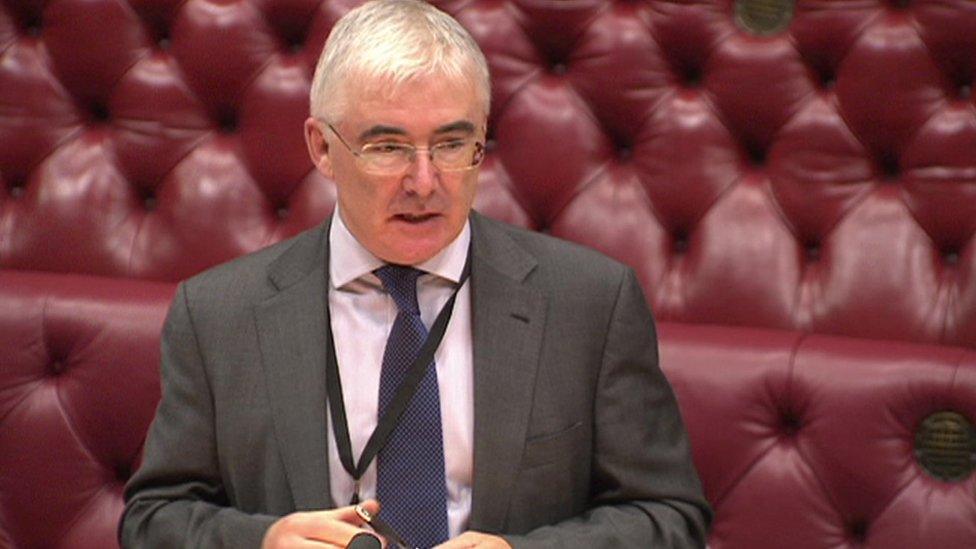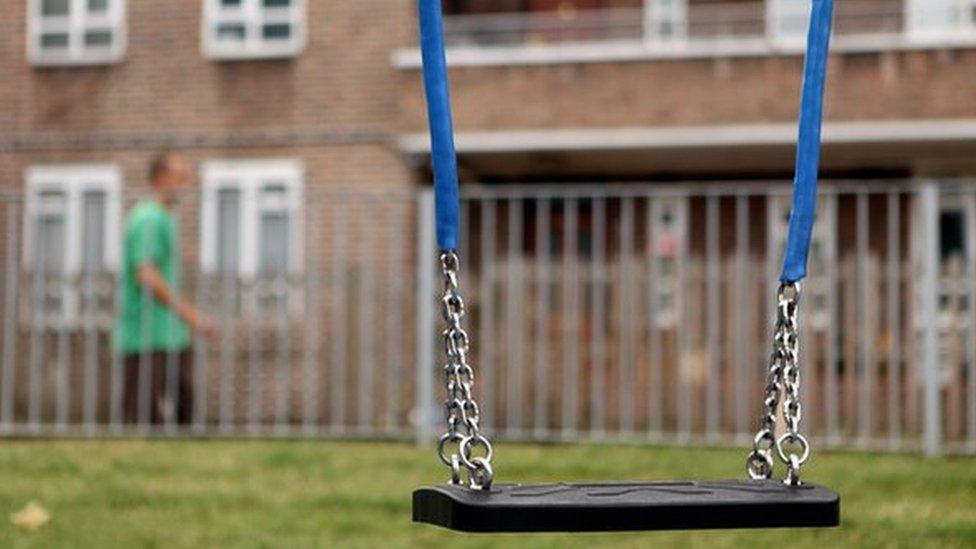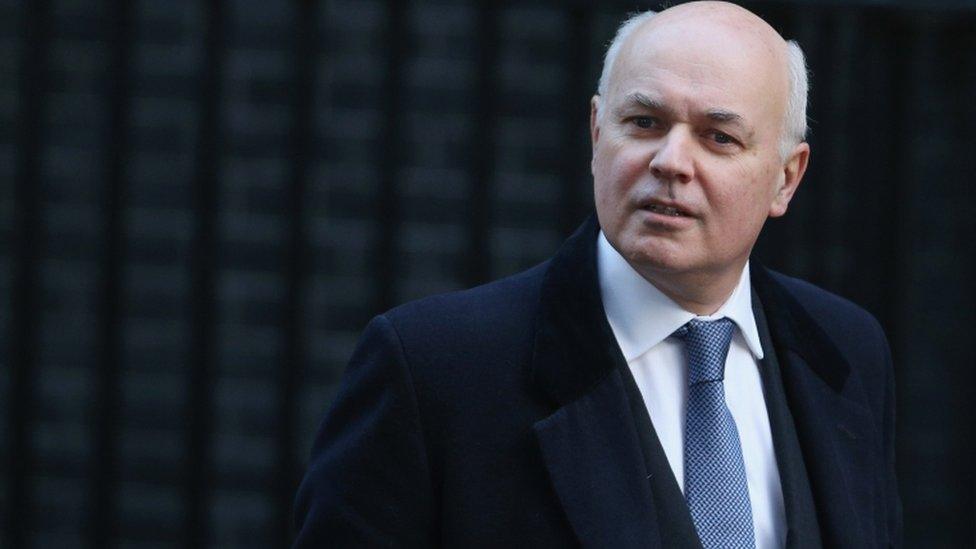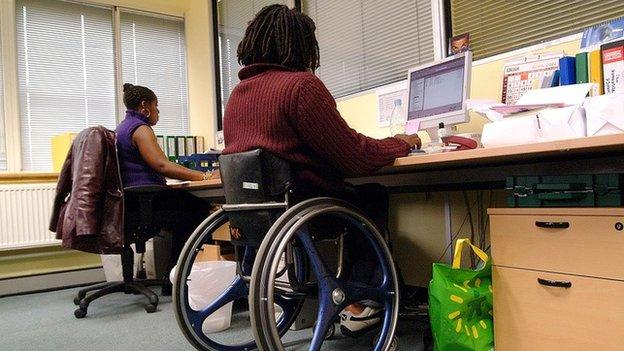Lords defeat for ministers over disability benefit cuts
- Published

Ministers argue that the current system is trapping people on benefits
The government has been defeated in the Lords over plans to cut the benefits of people with illness and disabilities.
Ministers want to cut Employment Support Allowance by £30 a week to spur some new claimants to return to work.
But Labour, Lib Dem and independent peers joined forces to block the move, arguing it would make it harder for those affected to pay for the support that might allow them to find work.
The government may try to overturn it at a later date in the Commons.
Ministers lost the vote on an amendment to the Welfare Reform and Work Bill, external by 283 votes to 198, a majority of 85.
The vote was welcomed by disability campaigners, who say there is "deep unease" about the cuts to ESA and other benefits.
'Catastrophic'
Opposition peers argued that cuts to Employment Support Allowance (ESA) for new claimants in the Work Related Activity Group (WRAG) - people deemed unfit to work but able to undertake activities to help them move towards work - would cause hardship for substantial numbers of people with disabilities.
Speaking in the debate, crossbencher Lord Low said: "A drop of £1,500 a year in their benefit income from £5,300 to £3,800 will be catastrophic for many disabled people.
"It will exacerbate poverty among the disabled - a third of working age disabled adults live in poverty already compared with only a fifth of those who are not disabled. The government's proposals would push many further towards, or actually into, poverty.
"The proposals would cause unnecessary hardship and anxiety to people who have been independently assessed as unfit for work, and the measures are likely to have a disproportionately adverse impact on disabled people."
'Lifetime on benefits'
Mencap's Rob Holland, who is chair of the Disability Benefits Commission, said: "The government wants to get more disabled people into work, but as a sector we have warned that cutting ESA WRAG, and its equivalent payment in Universal Credit, will directly undermine that commitment whilst pushing disabled people further from work and closer to or into poverty.
"This proposed cut together with the crisis in social care funding means disabled people are facing losses to critical support they need to make ends meet and to be included in society."
Welfare minister Lord Freud said ESA needed reform since, at the moment, only 1% of those in the WRAG category moved off the benefit each month. While the move would save some £55m in its first year, he said £60m would be spent during the same period to help disabled people into work.
"As a government, we want to ensure that we spend money responsibly in a way that improves individuals life chances and helps them achieve their ambitions, rather than paying for a lifetime wasted on benefits," he said.
And former Health Secretary Lord Lansley defended the changes, insisting they would encourage people with a capability to work to find employment.
"The bigger the gap between income in work and income through benefits, the greater the likelihood for people seeking work and finding it," he said.
Earlier on Wednesday, ministers agreed to exempt some adoptive and family groups from plans to limit Universal Credit benefits to only two children.
- Published25 January 2016

- Published23 January 2016

- Published30 October 2014
